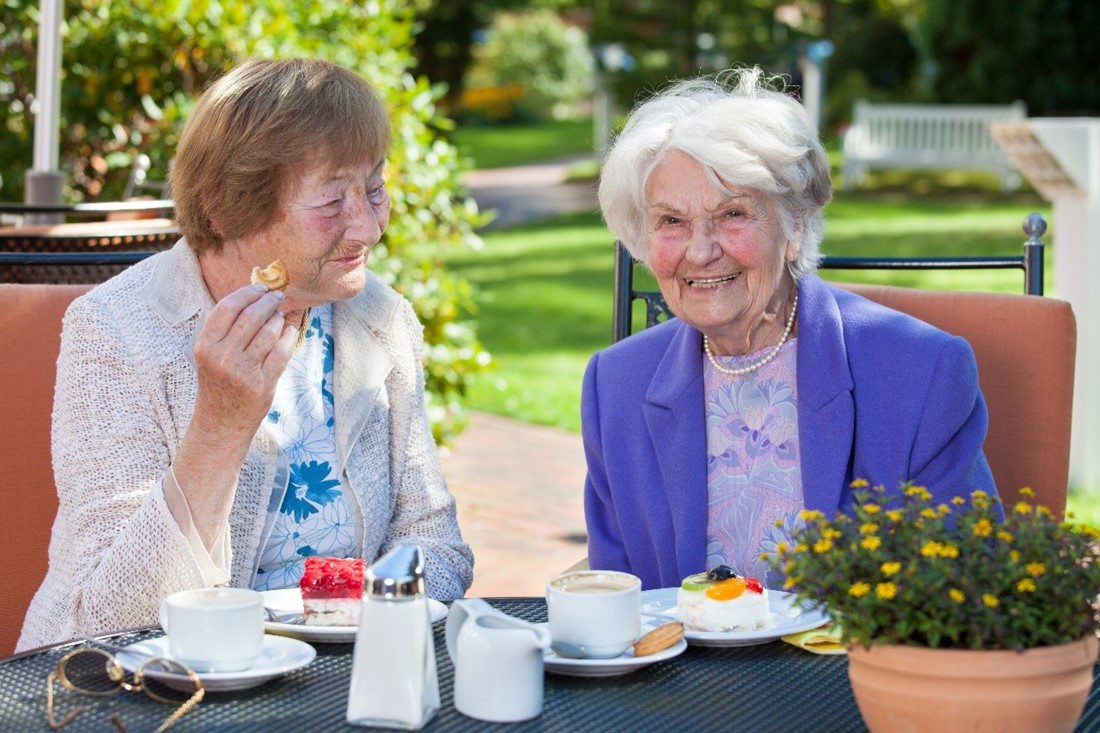Aside from providing a nutritious meal, meal assistance can be a significant influence on whether a resident receives the nutrition they need. There are a number of possible communication practices and physical techniques that are considered when giving meal assistance but there are also some things to avoid.
Read on to discover five things to avoid when assisting residents with meals and how you can prevent them from happening.
1. Over-assisting
You might have heard the saying, “The more you do for me, the more you take away from me”. This rings true with meal assistance. If a resident receives over-assistance, they may be less likely to exercise their eating skills and become increasingly reliant on staff.Unless a resident needs full assistance to eat, it is best to give them as much independence as possible. Monitoring assistance needed over time is a suitable approach.
2. Scheduling staff breaks over resident meal times
Maximising the number of staff available over main meal times as well as snack times can improve nutrition, promote better communication and make meal times a more efficient and happy environment for all.
3. Mixing meal components together
It can be tempting to mix a meal together when feeding to make it quicker and easier to give assistance. This might happen because of concern that residents will get full before finishing a meal, therefore the meal is mixed together to ensure residents are eating all components of the meal. However, this can reduce meal satisfaction and further prevent completion of a meal.
Are you getting feedback from some residents that everything tastes the same or they are bored of the meals? Check that staff are not mixing foods together. An individual approach is likely to work best.
4. Poor opportunity for engagement
In other words, not allowing enough time for staff to engage with residents at meal times. This may occur if staff are needing to multi-task at meal times. Visually prompting someone to eat along with verbal engagement can make a big difference. This can be practiced by physically giving the resident their cutlery or cutting up food to make it more manageable. This is especially relevant for residents with dementia who may need prompting to initiate a meal.
To put this in perspective, here is a first-person example: If you needed assistance to eat and the person helping was rushing you, walking away then coming back and not engaging in conversation, would you feel like a burden? How might your appetite be affected? Would you be motivated to eat your meal?
5. Forgetting the small things
Forgetting the smaller types of assistance such as opening packaging, moving bedside tables to the resident, placing drinks and cutlery within reach and cutting up foods as needed. Over time, these small factors can be the difference between a nourished and underweight resident.
Residents who need assistance, at any level, need to be identified early; not only to provide best nutritional care but to effectively identify those who do not need full support or are able to maintain some of their independence.
Your site dietitian and occupational therapist can provide training on meal assistance and provide advice on types of assistance needed for individual residents.
Your Plena Healthcare dietitian is experienced and knowledgeable in helping your home to meet the new SIRS criteria. Please do not hesitate to give us a phone call on 136 033 if you would like to discuss how your home can become a SIRS champion.



